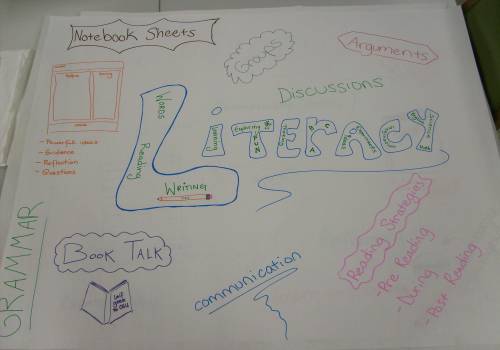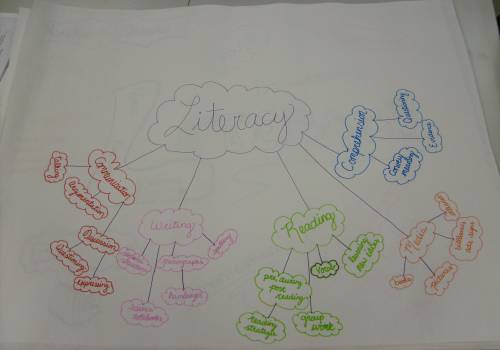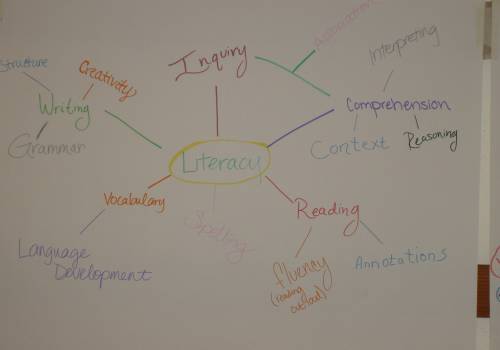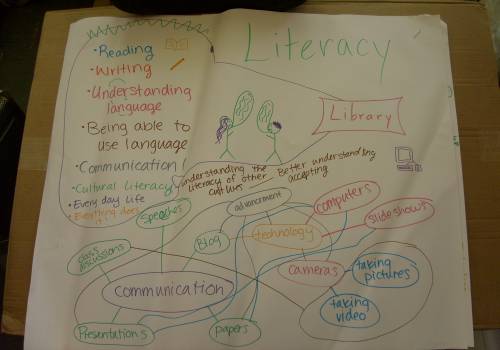Literacy
Navigation Links
Activities
Instructional Strategies
When most people think about literacy, they think about reading in the context of language arts. Literacy can be so much more than just reading! In Physics 111, science and literacy are interlinked to enhance the learning process. Literacy topics include reading, writing, listening, and speaking. On a daily basis, students in Physics 111 learn how to incorporate literacy topics into their own learning and into their future teaching. When these topics are paired together, a more holistic approach to conceptualizing material can be employed.
 |  |
”[I] loved science and literacy together. [I gained a] fresh look at science and I really think that this method will help students with their thought process, deductive reasoning, critical thinking but also help teachers guide lessons to meet their class's wonderings and teach very valuable stuff like a love of science.” -Student, Fall 2009
Literacy Concepts
| Literacy Concept | Definition |
|---|---|
| Listening | is an important aspect of Physics 111 because it allows students to process and understand science in ways they might not have considered. In addition, it gets students to challenge their own perceptions and understandings of science concepts. Students get the opportunity to listen to others share their ideas during activities, small groups, large group, presentations, and reflections. As future teachers, students in Physics 111 need to build and develop the literacy skill of listening. The ability to conceptualize another's ideas will enable them to teach their future students more effectively. |
| Speaking | is encouraged during every part of the day in Physics 111. Students get the opportunity to share their ideas and ask questions in small and large groups, and during presentations and end of day reflections. As with writing, the process of speaking encourages students to ask questions and further explore science topics. Speaking is a way of processing information. Allowing students to speak about their science ideas solidifies both what they know and what they would still like to find out. This is true both inside and outside of the classroom. |
| Writing | is a crucial component of Physics 111. Writing and drawing pictures of science topics enhances students' learning processes. Initial ideas are documented with diagnostic questions; predictions, observations, and reflections are written on a daily basis about the topics explored during class. In addition, the homework, midterms, and the final all include large segments of writing. Writing is highly beneficial to student learning because it encouages students to delve back into their brains to think, explore, and explain their thought processes on paper. These ideas can then be shared with others via written documents or verbally. |
| Reading | is just one of the valuable components of Physics 111. Students often find textbooks boring and/or intangible, so they are not used. Instead, other reading materials and mediums are utilized to encourage students to explore science and literacy in more applicable ways that will benefit their future teaching. Some of the reading topics include listening to and giving book talks, reading and analyzing children's books, critiquing and creating websites, and actively reading science journal articles in which real teachers implement the strategies talked about in class. |
| Creating and Critiquing Websites | is a valuable component of Physics 111 because it provides a context for solidifying understandings and sharing them with others. This form of media models a way for teachers to communicate with parents or others when they have their own students creating similar websites. |

